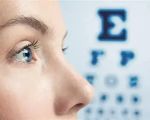- 1-understanding-eye-allergies
- 2-common-symptoms-and-causes
- 3-practical-strategies-for-eye-care
- 4-professional-treatments-and-prevention
- 5-real-experiences-and-benefits
1. Understanding the Impact of Allergies on Eye Health
During allergy season, many people face discomfort caused by airborne allergens such as pollen, dust, and pet dander. These allergens can trigger allergic conjunctivitis, which inflames the eyes and causes symptoms like itching, redness, and watering. Knowing how to care for eyes during allergy season is essential to protect your vision and maintain comfort through these challenging months.
Eye allergies occur when the immune system overreacts to allergens, releasing histamines that cause inflammation. Unlike typical eye irritation, allergy symptoms tend to persist as long as exposure continues. Recognizing this helps us take proactive steps to minimize eye distress and safeguard overall eye health.
1.1 The Difference Between Allergic and Other Eye Irritations
Many confuse eye allergies with infections or dry eye syndrome. Allergic reactions are characterized by bilateral symptoms—both eyes are affected simultaneously—with intense itching being a hallmark. Understanding these differences helps tailor care and avoid ineffective treatments.
1.2 Why Eye Care Is Crucial During Allergy Season
Ignoring allergy-related eye symptoms can lead to complications such as chronic inflammation or secondary infections. Additionally, continuous rubbing or exposure can worsen symptoms and potentially damage the delicate eye surface. Therefore, effective eye care during allergy season is not just about relief but also about prevention and long-term eye health preservation.
2. Common Symptoms and Causes of Eye Allergies
Knowing the typical symptoms and triggers aids in identifying allergy-related eye problems early. Common symptoms include:
- Itching and burning sensation
- Redness and swelling of the eyelids
- Watery or watery discharge
- Sensitivity to light
The primary causes usually stem from outdoor pollen, indoor dust mites, mold spores, pet dander, and sometimes airborne irritants like smoke or perfumes.
2.1 Seasonal Variation and Environmental Factors
Spring and early summer are peak allergy seasons due to high pollen levels, but fall and winter can also trigger symptoms because of mold spores or indoor allergens. Weather changes, wind, and pollution can worsen symptoms, making eye care even more critical.
2.2 Personal Susceptibility and Family History
Individuals with a personal or family history of allergies, asthma, or eczema are more prone to developing eye allergies. Understanding your susceptibility helps in planning preventive care well before symptoms appear.
3. Practical Strategies for Caring for Eyes During Allergy Season
Addressing eye allergies effectively requires a combination of lifestyle adjustments, hygiene practices, and symptom management. Here’s how you can take care of your eyes naturally and thoughtfully during allergy season.
3.1 Minimizing Allergen Exposure
Simple measures such as keeping windows closed during high pollen days, using air purifiers, and regularly cleaning bedding and curtains can significantly reduce allergen contact. Wearing sunglasses outdoors also acts as a barrier against pollen and dust.
3.2 Gentle Eye Hygiene and Avoiding Rubbing
Regularly rinsing eyes with sterile saline or using cold compresses can soothe irritation. It’s crucial to resist the urge to rub itchy eyes, as this can aggravate inflammation and potentially cause damage.
3.3 Over-the-Counter Eye Drops and Medications
Artificial tears help wash out allergens and moisturize dry eyes. Antihistamine eye drops can reduce itching and redness but should be used according to instructions to avoid rebound effects. Always consult healthcare providers if symptoms persist.
3.4 Lifestyle Habits to Support Eye Health
Maintaining a healthy diet rich in omega-3 fatty acids and antioxidants supports eye health. Hydration and adequate sleep also play roles in reducing eye irritation and improving recovery during allergy flare-ups.
4. Professional Treatments and Preventive Measures for Eye Allergies
When home care is insufficient, seeking professional advice is key. Eye specialists can provide personalized treatment plans, including prescription medications or immunotherapy.
4.1 When to See an Eye Doctor
If symptoms worsen or do not improve with over-the-counter treatments, consult a specialist promptly. Persistent redness, pain, or vision changes require immediate attention to rule out infections or other serious conditions.
4.2 Advanced Therapies and Allergen Immunotherapy
For severe or chronic allergies, immunotherapy (allergy shots) can gradually reduce sensitivity to allergens. This approach is often combined with targeted medications and tailored eye care routines recommended by professionals.
4.3 Customized Advice and Follow-Up
Eye Docs offers expert consultations to help individuals manage eye allergies effectively. Personalized care plans ensure the right balance between symptom relief and eye protection, with ongoing support for seasonal challenges.
5. Real Experiences and Lasting Benefits of Effective Eye Care
Take the example of Mark, who struggled every spring with severe eye itching and redness. After adopting a comprehensive eye care routine—including using protective eyewear, avoiding allergens indoors, and seeking professional advice—his symptoms became manageable. His story reflects how thoughtful care transforms the allergy season experience from discomfort to control.
5.1 Community Insights and Shared Tips
Many allergy sufferers share their strategies online, such as integrating eye care with overall allergy management and trying natural remedies alongside medical treatments. These shared experiences enrich the knowledge pool and offer encouragement.
5.2 Long-Term Advantages of Consistent Eye Care
Proper care during allergy season not only brings immediate relief but also protects against long-term eye damage. With the right habits, you preserve clear vision and enjoy allergy seasons with less stress.
For tailored eye care solutions and trusted products to help you manage allergies effectively, Eye Docs provides comprehensive resources and expert guidance designed to keep your eyes healthy year-round.








